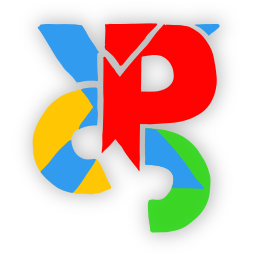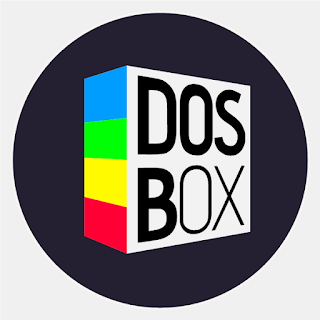 Ryujinx Git (2021/08/13) is compiled. Ryujinx is an open source Nintendo Switch Emulator written in C# created by gdkchan. This emulator aims at providing good performance and accuracy, a friendly interface, and consistent builds. Ryujinx is currently available for Windows, Linux, and macOS.
Ryujinx Git (2021/08/13) is compiled. Ryujinx is an open source Nintendo Switch Emulator written in C# created by gdkchan. This emulator aims at providing good performance and accuracy, a friendly interface, and consistent builds. Ryujinx is currently available for Windows, Linux, and macOS.
2021-08-13
Ryujinx Git (2021/08/13)
 Ryujinx Git (2021/08/13) is compiled. Ryujinx is an open source Nintendo Switch Emulator written in C# created by gdkchan. This emulator aims at providing good performance and accuracy, a friendly interface, and consistent builds. Ryujinx is currently available for Windows, Linux, and macOS.
Ryujinx Git (2021/08/13) is compiled. Ryujinx is an open source Nintendo Switch Emulator written in C# created by gdkchan. This emulator aims at providing good performance and accuracy, a friendly interface, and consistent builds. Ryujinx is currently available for Windows, Linux, and macOS.
rpcs3 Git (2021/08/13)
 rpcs3 Git (2021/08/13) is compiled. RPCS3 is an open-source Sony PlayStation 3 emulator and debugger written in C++ for Windows and Linux. The emulator has been in development since early 2011 and currently supports modern DirectX 12, Vulkan and OpenGL renderers. The emulator is capable of booting and playing a decent amount of commercial games and PlayStation 3 SDK samples. Many more titles are also becoming playable with future development by contributors.
rpcs3 Git (2021/08/13) is compiled. RPCS3 is an open-source Sony PlayStation 3 emulator and debugger written in C++ for Windows and Linux. The emulator has been in development since early 2011 and currently supports modern DirectX 12, Vulkan and OpenGL renderers. The emulator is capable of booting and playing a decent amount of commercial games and PlayStation 3 SDK samples. Many more titles are also becoming playable with future development by contributors.
PCSX-Redux Git (2021/08/13)
 PCSX-Redux Git (2021/08/13) is compiled. This is yet another fork of the Playstation Emulator, PCSX. While the work here is very much in progress, the goal is roughly the following: Bring the codebase to more up to date code standards. Get rid of the plugin system and create a single monolithic codebase that handles all aspects of the playstation emulation. Write everything on top of SDL/OpenGL3+/ImGui for portability and readability. Improve the debugging experience. Improve the rendering experience.
PCSX-Redux Git (2021/08/13) is compiled. This is yet another fork of the Playstation Emulator, PCSX. While the work here is very much in progress, the goal is roughly the following: Bring the codebase to more up to date code standards. Get rid of the plugin system and create a single monolithic codebase that handles all aspects of the playstation emulation. Write everything on top of SDL/OpenGL3+/ImGui for portability and readability. Improve the debugging experience. Improve the rendering experience.
PPSSPP Git (2021/08/13)
Project64 Git (2021/08/13)
 Project64 Git (2021/08/13) is compiled. Project 64 is a proprietary Nintendo 64 emulator for Windows. It employs a plug-in system that allows third-party software developers to create their own implementation of a specified component. Project64 allows the user to play Nintendo 64 games on a computer by reading ROM images, either dumped from the read-only memory of a Nintendo 64 cartridge or created directly on the computer as homebrew. Project64 started as an exercise by Jabo and zilmar in an attempt to see if they were capable of programming a Nintendo 64 emulator. It's open source now.
Project64 Git (2021/08/13) is compiled. Project 64 is a proprietary Nintendo 64 emulator for Windows. It employs a plug-in system that allows third-party software developers to create their own implementation of a specified component. Project64 allows the user to play Nintendo 64 games on a computer by reading ROM images, either dumped from the read-only memory of a Nintendo 64 cartridge or created directly on the computer as homebrew. Project64 started as an exercise by Jabo and zilmar in an attempt to see if they were capable of programming a Nintendo 64 emulator. It's open source now.
Fceux Git (2021/08/13)
 Fceux Git (2021/08/13) is compiled. FCEUX is a cross platform, NTSC and PAL Famicom/NES emulator that is an evolution of the original FCE Ultra emulator. Over time FCE Ultra had separated into many separate branches. The concept behind FCEUX is to merge elements from FCE Ultra, FCEU rerecording, FCEUXD, FCEUXDSP, and FCEU-mm into a single branch of FCEU. As the X implies, it is an all-encompassing FCEU emulator that gives the best of all worlds for the general player, the ROM-hacking community, and the Tool-Assisted Speedrun Community.
Fceux Git (2021/08/13) is compiled. FCEUX is a cross platform, NTSC and PAL Famicom/NES emulator that is an evolution of the original FCE Ultra emulator. Over time FCE Ultra had separated into many separate branches. The concept behind FCEUX is to merge elements from FCE Ultra, FCEU rerecording, FCEUXD, FCEUXDSP, and FCEU-mm into a single branch of FCEU. As the X implies, it is an all-encompassing FCEU emulator that gives the best of all worlds for the general player, the ROM-hacking community, and the Tool-Assisted Speedrun Community.
FB Neo Git (2021/08/13)
 FB Neo Git (2021/08/13) is compiled. FinalBurn Neo is an Emulator for Arcade Games & Select Consoles. It is based on the emulators FinalBurn and old versions of MAME.
FB Neo Git (2021/08/13) is compiled. FinalBurn Neo is an Emulator for Arcade Games & Select Consoles. It is based on the emulators FinalBurn and old versions of MAME.
EKA2L1 Git (2021/08/13)
 EKA2L1 Git (2021/08/13) is released. EKA2L1 is a Experimental Symbian OS emulator, written in C++ 17. The emulator currently emulates Symbian OS's EKA2 behavior (with planned EKA1 support), and reimplement most of its critical app servers. It can already boot many EKA2's apps and games, with EKA1 being worked on at the moment.
EKA2L1 Git (2021/08/13) is released. EKA2L1 is a Experimental Symbian OS emulator, written in C++ 17. The emulator currently emulates Symbian OS's EKA2 behavior (with planned EKA1 support), and reimplement most of its critical app servers. It can already boot many EKA2's apps and games, with EKA1 being worked on at the moment.
DOSBox-Staging Git (2021/08/13)
 DOSBox-Staging Git (2021/08/13) is compiled. This repository attempts to modernize the DOSBox project by using current development practices and tools, fixing issues, adding features that better support today's systems, and sending patches upstream.
DOSBox-Staging Git (2021/08/13) is compiled. This repository attempts to modernize the DOSBox project by using current development practices and tools, fixing issues, adding features that better support today's systems, and sending patches upstream.
DOSBox SVN r4465
 DOSBox SVN r4465 is compiled. DOSBox emulates an Intel x86 PC, complete with sound, graphics, mouse, joystick, modem, etc., necessary for running many old MS-DOS games that simply cannot be run on modern PCs and operating systems, such as Microsoft Windows XP, Windows Vista, Linux and FreeBSD. However, it is not restricted to running only games. In theory, any MS-DOS or PC-DOS (referred to commonly as "DOS") application should run in DOSBox, but the emphasis has been on getting DOS games to run smoothly, which means that communication, networking and printer support are still in early development.
DOSBox SVN r4465 is compiled. DOSBox emulates an Intel x86 PC, complete with sound, graphics, mouse, joystick, modem, etc., necessary for running many old MS-DOS games that simply cannot be run on modern PCs and operating systems, such as Microsoft Windows XP, Windows Vista, Linux and FreeBSD. However, it is not restricted to running only games. In theory, any MS-DOS or PC-DOS (referred to commonly as "DOS") application should run in DOSBox, but the emphasis has been on getting DOS games to run smoothly, which means that communication, networking and printer support are still in early development.
